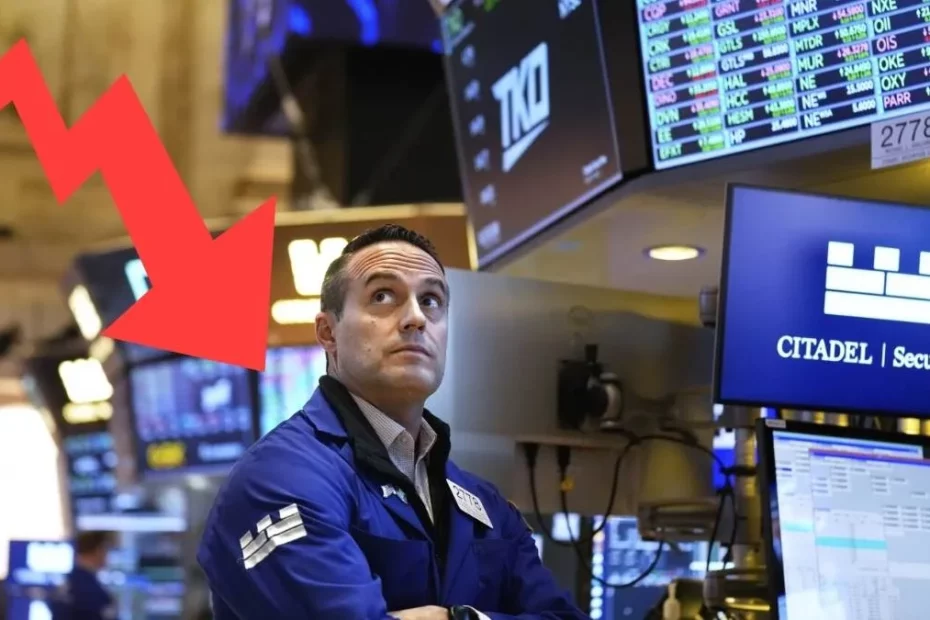US stock markets ended the week on a sharply negative note as rising tensions in the Middle East rattled investor confidence. A sudden escalation between Israel and Iran, involving missile exchanges over major cities like Tel Aviv and Jerusalem, sent shockwaves through global markets.
The Dow Jones Industrial Average tumbled 1.79% to close at 42,197.79, while the S&P 500 fell 1.13% to 5,976.97. The Nasdaq Composite also took a hit, dropping 1.30% to end the day at 19,406.83.
A Nervous Market Reacts to a Global Flashpoint
The selloff came after Iran fired missiles at Israel, retaliating for Israeli airstrikes that reportedly targeted nuclear and missile production sites in Iran. Explosions lit up the skies over Jerusalem and Tel Aviv, triggering air raid sirens and putting markets on edge.
“It feels like we’re on the brink of something much bigger,” said Elias Haddad, a senior strategist at Brown Brothers Harriman. “If this spills into the broader region, particularly around the Strait of Hormuz, it could seriously disrupt global oil flows.”
Energy and Defense Stocks Stand Out
With oil prices surging nearly 7% on fears of supply disruptions, energy companies saw a rare bright spot in the otherwise bleak trading session. ExxonMobil shares rose 2.2%, and Diamondback Energy rallied 3.7% as investors shifted focus to oil producers.
Defense stocks also jumped, buoyed by the likelihood of increased military spending and global arms demand. Lockheed Martin, RTX Corporation, and Northrop Grumman each gained more than 3%.
Financials and Tech Lead the Decline
On the flip side, financial stocks were hit the hardest. The S&P 500’s financial sector dropped 2.06%, followed closely by a 1.5% dip in tech stocks.
Big names like Apple (-1.4%), Nvidia (-2.1%), and Adobe (-5.3%) dragged the tech sector down. Adobe’s decline came despite raising its annual revenue forecast, as concerns about its slow AI rollout weighed on sentiment.
Visa and Mastercard were also under pressure, each losing over 4% after reports surfaced that large retailers were exploring cryptocurrency-based payment systems — a move that could bypass traditional card networks altogether.
Airlines Hit by Fuel Price Surge
With oil prices spiking, airline stocks nosedived.
- Delta Air Lines fell 3.8%
- United Airlines dropped 4.4%
- American Airlines sank 4.9%
Investors fear higher jet fuel costs could cut into already tight margins for carriers, especially heading into the busy summer travel season.
Weekly Recap: All Eyes on Geopolitics and the Fed
The week closed in the red across the board:
- Dow Jones lost 1.3%
- S&P 500 slipped 0.4%
- Nasdaq declined 0.6%
This week’s economic data — including tame inflation and jobless claims — offered little relief, as global headlines took center stage. With the Federal Reserve expected to hold interest rates steady next week, investors are likely to stay focused on developments in the Middle East.
Market Mood: Defensive and Uncertain
Trading volume was just shy of the monthly average, with nearly 18 billion shares changing hands across US exchanges. Within the S&P 500, declining stocks outpaced gainers by more than 6-to-1 — a clear sign of nervous sentiment.
Even with some positive signals from the US economy, the looming uncertainty from the Israel-Iran conflict has clearly spooked Wall Street.
As the geopolitical situation continues to unfold, traders are bracing for more volatility in the days ahead. For now, investors are leaning defensive — putting money into energy, military, and other safe-haven plays while steering clear of riskier assets.
